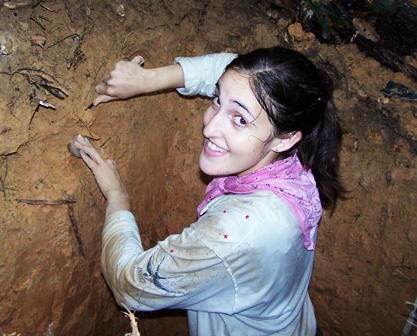
In the second OPPORTUNITY call, it was a tough decision for the EVOLTREE Executive Committee, with no less than 16 competing high quality project proposals.
The committee members settled on two excellent project proposals which matched all evaluation criteria (see below). Good luck to these two successful candidates and thank you to the other candidates for their proposals. OPPORTUNITY has closed for this year.
Lindsay Banin is a research scientist at the Centre for Ecology and Hydrology (CEH), Edinburgh, UK, an associate member institution of the EVOLTREE network.
In collaboration with Stephen Cavers (also at CEH), Emma Sayer (Lancaster University), and intensive study site coordinators, Jan Kowalczyk (Blizyn), Egbert Beuker (Punkaharju) and Martina Peter (Valais), Lindsay developed a project to examine the effects of inter- and intra-specific leaf trait variation on decomposition processes.
The project utilises three geographically separated and climatically distinct, unmanaged forest sites where trees may have become locally adapted to environmental conditions. This means that even trees belonging to the same species may be expressing differences in functional traits.
Typically, research has focused on inter-specific variation in plant traits causing differences in rates of decomposition and belowground processes. Here, we specifically want to test whether similar differences occur within species too.
The project will also test for ‘home-field advantage’; i.e., that decomposition is more efficient for individuals and species on their home soil due to conditioning of soil microbial communities to ‘native’ leaf litter.
The EVOLTREE network provides an excellent springboard for this research through the knowledge of the tree species distributions within each ISS. The research team hope that this new collaboration will establish a new science direction for the network and the project also aims to train junior scientists in assessing plant-soil interactions.




